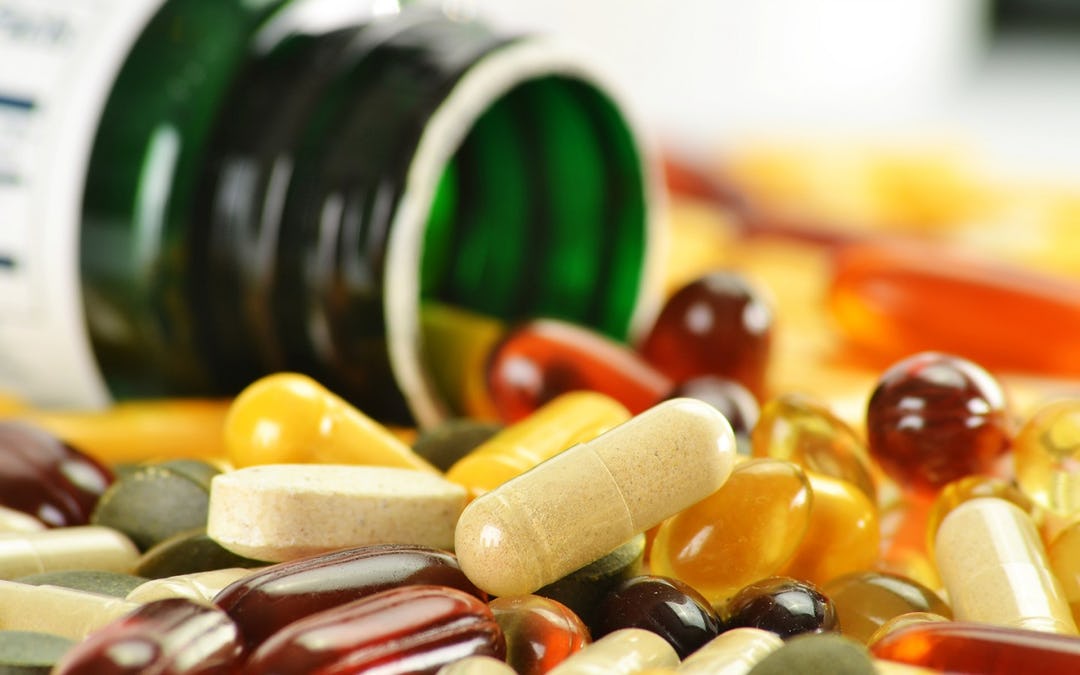An hour after swallowing your morning multivitamin, the concrete-like consistency and trail of mineral grit has finally dissipated. Your fluorescent stream makes the porcelain glow despite being adequately hydrated. Part of you is pleased that the vitamins have at least toured your gastrointestinal tract. Another side of you wonders if you’re paying premium price for pineapple-colored pee.
Your subjective vitamin experience may be further diluted with media headlines proclaiming the complete inertness of additional vitamins. “Expert” opinions and “definitive studies” tout the bottom-bannered headlines of major news websites proclaiming that ingesting vitamins is purely wasteful.
Navigating the murky flow of health information can be discouraging and, more importantly, can lead to some seriously incorrect information. Here is a simple guide to the vitamins and minerals you should be taking.
Vitamins are organic compounds that are essential to life’s diverse biological functions, but cannot always be fully synthesized by the human body. Deficiencies in any particular vitamin can result in a range of physical deteriorations, ranging from minor fatigue to severe disease. On the other hand, excessive intake of certain vitamins can lead to harmful toxicity (two examples are below).
You Might be Deficient If…
You are a vegan: Non-animal sources of B12 such as microorganisms on vegetables, tempeh, or sea vegetables are not considered reliable sources. Adequate sources include fortified soy milk, nutritional yeast, or supplements that reach the recommended daily allowance (RDA) of 2.4 micrograms.
You are a female of childbearing age: All women of childbearing age should take folic acid (or folate) to prevent birth defects. 400 micrograms of folic acid is necessary in the first weeks of developing embryos, therefore addressing a deficiency is critical prior to conceiving, intentionally or otherwise.
You are a female with heavy menstruation: Blood loss means iron loss. Women should aim to reach 18 mg of iron per day.
You’ve undergone gastric bypass: The stomach plays an essential role in the digestion and absorption of vitamins. Gastric bypass surgery typically produces deficiencies of iron, folate, b12, calcium, and zinc, thus making the intake of multivitamin supplements a requirement.
Food First, Supplement Second
If you believe that earth-grown nutrients are central to strong nutrition, then you most likely meet or exceed the RDA for most vitamins. But most people aren’t getting the RDA for every vitamin and mineral every day. If you’re not, here are micronutrients you should pay attention to and consider supplementing with.
Vitamin B12 – Plays a key role in the metabolism process in nearly every cell in the body. Supplements may improve subjective energy levels.
RDA: 2.4 micrograms
Natural source: Eggs, meat, milk
Supplement with 1-25 micrograms
Vitamin B6 – An essential cofactor in the biosynthesis of neurotransmitters.
RDA: 1.3 mg
Natural sources: Chickpeas, potatoes, pistachios, bananas, beef, turkey
Supplement with 5-20 mg
Vitamin D
Regulates bone and muscle growth and produces biological actions that are similar to the ones produced by hormones. Deficiency often occurs in winter months or locations with low sunlight.
RDA: 800 IU
Natural Sources: Fish, eggs, liver, mushrooms
Supplement with 1000 IU per day.
Vitamin C
Required for collagen synthesis. May reduce the severity of the common cold, but not the incidence.
RDA: 60 mg
Natural source: Fruits, vegetables, nuts, seeds
Supplement with 500-1000 mg
Vitamin K2
Required for blood coagulation factors.
RDA: 120 micrograms
Natural source: Leafy greens, egg yolks, liver
Supplement with 100 micrograms
Calcium
Vital for bone health, neurotransmission, and muscle contraction.
RDA: 1000 mg
Natural Source: Dairy, white beans, salmon, figs, kale
Supplement with 600 mg
Potassium
Lowers blood pressure, reduces kidney stones, and prevents bone loss.
RDA: 4,700 mg
Natural Source: Bananas, soybeans, carrots, sweet potatoes
Supplement with Potassium Gluconate: 500-1000 mg
Magnesium
Elemental in cell energy metabolism.
RDA 300-400 mg
Natural Sources: Avocado, dried fruit, chocolate
Supplement with Magnesium Citrate: 200 mg
Avoid Excess: Vitamins A and E
Vitamins A and E are fat soluble, and therefore are readily retained and more challenging for the body to excrete. Toxicity of vitamin A and E can lead to more severe consequences to other fat soluble vitamins (vitamin D and vitamin K) or water soluble vitamins.
Hypervitaminonsis A can alter bone metabolism, cause liver damage, and degrade eyesight. Overdose typically results from ingesting more than 25,000 IU for six years or greater.
Hypervitaminonsis E can lead to excessive bleeding due to decreased activity of vitamin K.
Are You Pissing Money Down the Drain?
Riboflavin, or Vitamin B2, is the culprit for the dark yellow hue and can alter urine color above the RDA of 1.1 mg. If your pee is more colorful than normal, it’s probably because you’re getting rid of excess B vitamins. Unfortunately, there are upper limits on what you can absorb for certain vitamins. If you’ve already got enough, you’re peeing out the excess.
The question remains whether or not most people should be taking a multivitamin every day. The short answer is no, unless a medical condition predisposes you towards a deficiency. However, increased amounts of Vitamins B12, B6, C, D, K, as well as calcium and magnesium through food or supplementations have possible health benefits with relatively low risks. Plus, it’s good to have a bit of insurance in case you’re not hitting your RDAs or if you experience a health challenge.
Excessive and prolonged intake of vitamin A and E may lead to more severe vitamin toxicity. Online nutritional intake calculators and comprehensive blood tests are more precise methods of determining deficiencies, but are not necessary for most people. Above all, plant-based nutrients, lean meat, and fish should be the primary source of obtaining micronutrients, reserving vitamin and mineral supplements to fill in the gaps.

)





